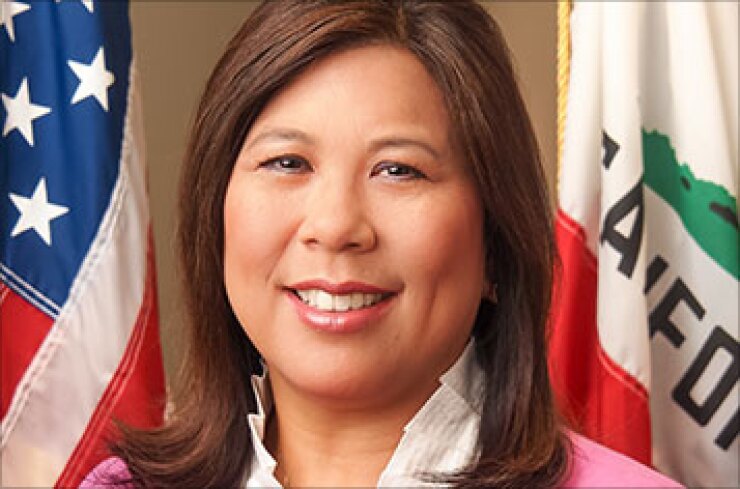
LOS ANGELES — California's controller said she found widespread deficiencies in the state Board of Equalization's fiscal controls, leading to revenue being placed in the wrong accounts and a failure to collect debts owed the state.
State Controller Betty Yee, who sits on the board, said Wednesday
The board is falling short in its "crucial mission of making sure tax dollars get to the right places," Yee said in a statement. It must implement more internal controls, train staff, and break down silos that are detrimental to sound administration, she said.
The board collected $48.5 billion in retail sales and use tax revenue, accounting for more than 24% of state revenue during the 2013-14 fiscal year.
Established in 1879 by constitutional amendment, the board is supposed to ensure uniformity of property tax assessments.
The board, which also collects property taxes and special taxes as well as handling tax case appeals, lacks adequate controls over the retail sales tax fund, rendering it unable to detect errors in a timely manner, according to the report.
In one case, the controller's office discovered that the state General Fund got $47.8 million too much, while other funds were shortchanged that amount.
Executive Director Cynthia Briggs, in a written response to the controller's findings, said the board is committed to strengthening fiscal controls and communication.
Briggs said an internal review on June 30 led board staff to develop an action plan, but the controller's office said the board did not describe improvements before the controller's report was released, so Yee's office could not evaluate the proposed improvements.
The review also discovered weaknesses in the board's oversight of its internal revolving fund used for salaries, travel, and vendor payments.
Other findings include:
- The board suffers from a lack of reliable information and communication among its staff units. As a result, revenue collection staff may be unaware of what is included in statistical reports used to determine tax allocations or the effects of new laws and regulations on allocations.
- In quarterly reconciliations of tax revenue allocations, the board improperly counted items that should have been left out, and made incorrect adjustments, leading to misallocations of funds.
- The board's Office Revolving Fund did not collect debts in a timely manner, including travel advances, salary advances, and payments due from various vendors. Vendor payments through the fund—which should have gone through a normal claims process—opened the door to misuse of state funds. Employees did not sign forms requesting salary advances, and the Controller's reviewers could find no evidence advances were approved by managers or supervisors.





